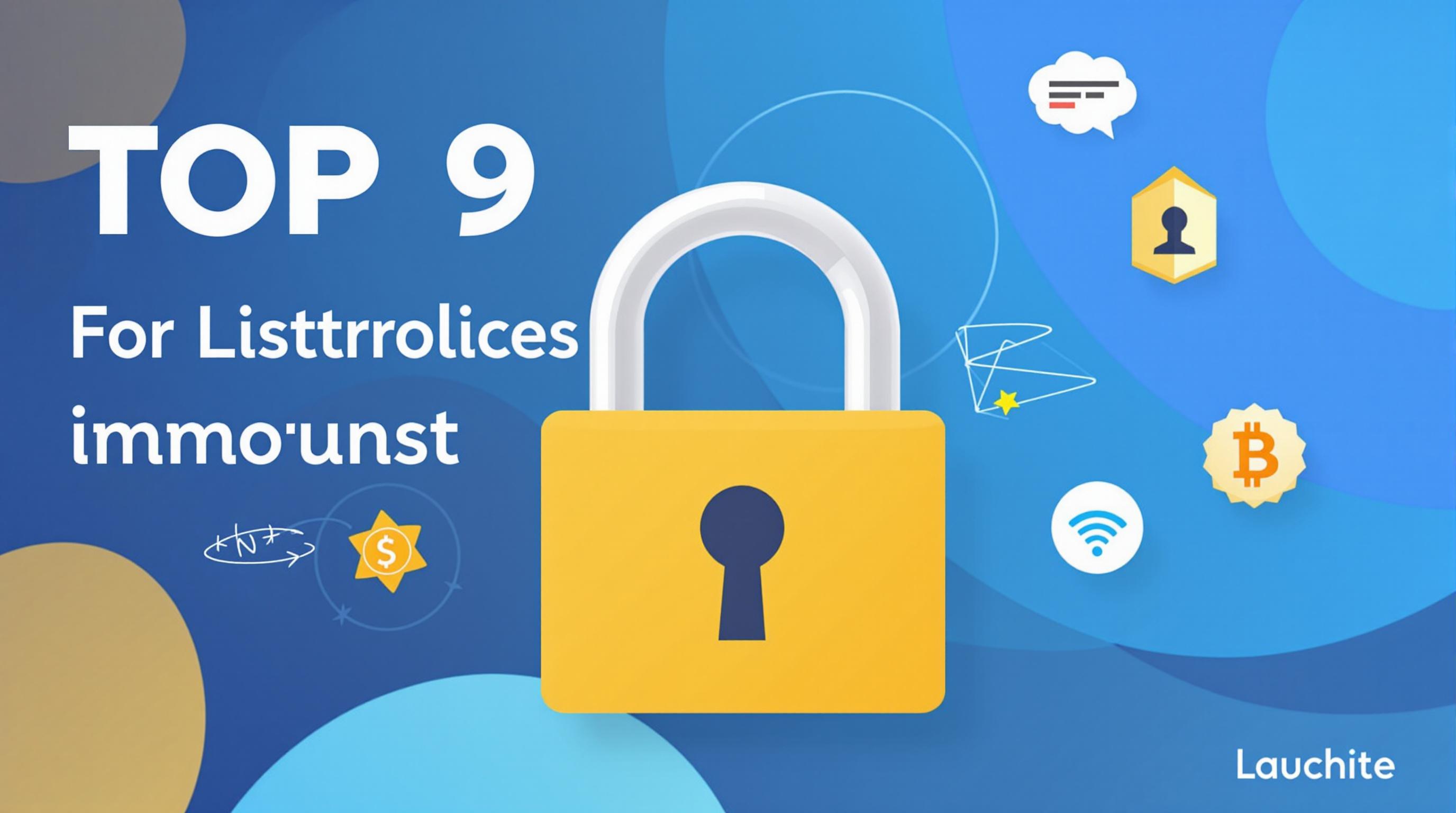Related Articles
- Unveiling the Silent Effects of Malware Residue on IoT Devices and What It Means for Your Connected Home Security
- Top 6 Game-Changing Email Security Suites Released Since 2019 That Actually Stop Cyber Trickery
- The Hidden Impact of AI-Driven Voice Assistants on Your Device’s Safety: Risks Nobody Talks About
- Top 6 Stealth Encryption Products Redefining Data Privacy You Haven’t Heard About Since 2019
- Exploring the Influence of Wi-Fi Radiation on Human Sleep Patterns and Cognitive Health in Modern Living
- Top 8 Stealth Malware Cleaners from the Past 5 Years That Outsmart Evasive Threats
Top 6 Elite Smartphone Defense Tools Released Since 2019: Expert Analysis and Buyer Insights
Top 6 Elite Smartphone Defense Tools Released Since 2019: Expert Analysis and Buyer Insights
Top 6 Elite Smartphone Defense Tools Released Since 2019: Expert Analysis and Buyer Insights
In the rapidly evolving digital landscape, smartphone security has become a critical concern for consumers and enterprises alike. Since 2019, several advanced defense tools have emerged, combining cutting-edge technology and user-centric design to combat sophisticated cyber threats. This article explores the top six elite smartphone defense tools launched since 2019, providing expert analysis and valuable buyer insights for anyone looking to enhance their mobile security.
With cyberattacks becoming increasingly targeted and complex, smartphone users require more than just basic antivirus apps. Modern defense tools employ AI-driven threat detection, encrypted communications, biometric authentication, and real-time vulnerability assessments. As we review these elite tools, we will examine their technological innovations, practical benefits, and suitability for different user profiles.
Each section offers an in-depth look at a specific tool, highlighting its core features, competitive advantages, and potential limitations. Whether you are a security enthusiast, a business professional, or a casual user seeking robust protection, this guide will help you make an informed decision supported by the latest expert evaluations and buyer feedback.
1. Lookout Mobile Security (2020 Update)
Lookout Mobile Security is renowned for blending traditional antivirus capabilities with advanced privacy protection. The 2020 update introduced AI-powered phishing detection and real-time device monitoring, placing it at the forefront of mobile defense.
Experts praise Lookout for its intuitive interface and comprehensive threat coverage that extends beyond malware to include network attacks and identity theft. A study by AV-Test confirmed its high detection rates, scoring above 98% in the latest trials.
Buyers appreciate the tool's anti-theft features and cloud backup, although some mention the premium subscription cost as a consideration. This makes Lookout ideal for users seeking a balanced, all-in-one security solution with continuous updates.
2. Norton Mobile Security (2019 Relaunch)
Norton significantly revamped its mobile security offering in 2019, reinforcing its market presence with enhanced app advisor technology and Wi-Fi security features. This relaunch aimed to provide users with real-time app risk insights and safer network connectivity.
Cybersecurity analysts note that Norton excels at warning users about risky apps before installation, an important step in preventing zero-day attacks. Its VPN integration adds another layer of privacy, making it suited for on-the-go users.
While the app is resource-intensive on some devices, consumers value its brand reputation and comprehensive protection. It is often recommended for individuals who prioritize app vetting alongside traditional antivirus measures.
3. McAfee Mobile Security (2021 Enhancements)
McAfee Mobile Security received major enhancements in 2021, incorporating behavior-based threat detection and improved privacy management tools. This update focused on safeguarding sensitive data and preventing unauthorized access.
Industry experts highlight its effective anti-theft mechanisms and secure media vault as standout features. McAfee also supports multi-device management, enabling seamless security oversight for families and small businesses.
From the buyer perspective, its user-friendly dashboard and responsive customer support have received positive reviews, although some users recommend paying for the premium tier to unlock full functionality.
4. Kaspersky Security Cloud for Mobile (2020 Release)
Kaspersky launched its Security Cloud for Mobile in 2020, emphasizing cloud-powered protection and adaptive security tailored to user behavior. The tool combines malware scans with privacy protection and anti-tracking technologies.
Analysts commend Kaspersky’s strong malware detection scored by independent labs and its ability to block phishing sites effectively. The seamless cloud integration ensures continuous updates without manual input from users.
Buyers find Kaspersky appealing for its transparent interface and effective performance on both Android and iOS platforms. Privacy-conscious users benefit from the app’s minimal data collection policies.
5. Sophos Intercept X for Mobile (2022 Breakthrough)
Sophos Intercept X for Mobile emerged in 2022 as an innovative defense tool featuring endpoint detection and response (EDR) capabilities tailored for smartphones. It focuses on preventing advanced persistent threats and network exploits.
Security professionals highlight its unique ability to integrate with enterprise security infrastructure, providing comprehensive visibility and rapid incident response. The app's malware scanning is complemented by web filtering and device encryption features.
Buyers within corporate environments report satisfaction with its scalability and centralized management tools. While it has a steeper learning curve, enterprise users benefit from its robust professional-grade protections.
6. Bitdefender Mobile Security (2019–2023 Progressive Updates)
Bitdefender has pushed continuous updates since 2019, maintaining its reputation as a lightweight and powerful mobile security tool. Its progressive improvements include AI-based threat detection, anti-theft features, and privacy advisors.
Experts recognize Bitdefender for its minimal impact on device performance and high detection efficiency. Independent testing labs like AV-Comparatives have repeatedly awarded it top marks.
Consumers praise Bitdefender for an excellent balance of usability and security features at an affordable price point. Its cross-platform compatibility makes it a good choice for users seeking consistency across devices.
Comparative Analysis of the Top Tools
Analyzing these tools collectively reveals a spectrum ranging from consumer-friendly applications to enterprise-grade security suites. Lookout, Norton, and Bitdefender cater primarily to general users with comprehensive, easy-to-use features.
Kaspersky and McAfee stand out for their cloud integration and privacy management, appealing to users who value adaptive security and data protection. Sophos, on the other hand, targets businesses requiring advanced endpoint detection and prompt threat response.
Choosing the right tool depends largely on individual needs, such as resource availability, device compatibility, and threat landscape. Users focused on privacy may favor Kaspersky, while enterprises may prefer Sophos for its centralized security operations.
Buyer Insights and Customer Satisfaction
Customer reviews across platforms like Google Play and App Store provide valuable insights into real-world performance and usability. Lookout and Bitdefender consistently receive high ratings for ease of use and effective defense mechanisms.
Some users of Norton and McAfee mention battery usage concerns, but appreciate the comprehensive security coverage. Sophos users highlight its powerful features but note that the complexity can be a barrier for casual users.
Overall, user feedback emphasizes the importance of continuous updates, customer support responsiveness, and balanced performance impact — key factors influencing buyer satisfaction and retention.
How to Choose Your Smartphone Defense Tool
Start by assessing your primary security needs: malware detection, anti-phishing, privacy, or enterprise-level management. For personal use, lightweight apps with intuitive controls such as Bitdefender or Lookout are effective options.
For corporate users, tools offering integrated management and advanced threat intelligence like Sophos or McAfee may be better suited. Always consider compatibility with your device OS and technical support quality.
Additionally, trial versions and free tiers provide a risk-free way to test functionality before committing to subscriptions. Ensuring regular updates and vendor transparency remains critical to maintaining long-term protection.
Conclusion: Future of Smartphone Defense
The smartphone defense landscape is evolving rapidly with advances in AI, machine learning, and cloud computing. Tools released since 2019 demonstrate a strong commitment to proactive, adaptive, and user-friendly protection technologies.
As threats become more complex, users must remain vigilant by selecting reliable defense tools aligned with their unique requirements and staying informed through expert reviews and community feedback.
Investing in a top-tier smartphone security tool not only protects personal data but also supports safer mobile experiences in an interconnected digital world. As new innovations emerge, continuous evaluation will be essential to stay ahead of evolving cyber risks.
References
AV-Test. (2023). Mobile Security Test Results. Retrieved from https://www.av-test.org/en/
AV-Comparatives. (2023). Mobile Security Reviews. Retrieved from https://www.av-comparatives.org/
Lookout Inc. (2020). Lookout Mobile Security Update. Retrieved from https://www.lookout.com/
NortonLifeLock. (2019). Norton Mobile Security Relaunch. Retrieved from https://us.norton.com/
Sophos. (2022). Intercept X for Mobile. Retrieved from https://www.sophos.com/
Kaspersky Labs. (2020). Security Cloud for Mobile. Retrieved from https://www.kaspersky.com/




